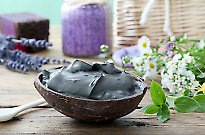
Homemade apple cider vinegar

Reap the health benefits.
It’s possible to make vinegar from any fruit containing sugar, but apple cider vinegar is a favourite and is highly praised for its healing benefits.
It’s possible to make vinegar from any fruit containing sugar, but apple cider vinegar is a favourite and is highly praised for its healing benefits. The following recipe will give you a low acidity apple cider vinegar. The shelf life of vinegar is so long that you might consume it before it goes off.
Ingredients
- 2 to 3 apples, cut into small pieces (include peel and core)
- 2 x 1 litre wide-necked glass jars
- Approx 600 ml (2 ½ cups) water, at room temperature, enough to fill a jar
- 2 tbsp honey
- Cheesecloth or fine muslin
- Piece of string, or a rubber band
Method
Place the apple chunks in a sterilised jar and add enough water to fill it. Stir in the honey. Cover the jar with a piece of cloth and secure. Leave in a warm, dark, dry place – light will slow or kill vinegar production.
After about two weeks, the water will become cloudy and white foam will appear on the surface. Alcoholic fermentation is taking place as natural sugars change into alcohol.
When the apple pieces sink to the bottom, strain the solution into a sterilised jar and cover with the cloth as before. Store the liquid for a further four to six weeks.
The alcohol will now start to convert into acetic acid through acid fermentation and a white, gelatinous layer will form on the surface. This is called ‘the mother’ and is made up of vinegar bacteria and cellulose, which is not only fine for consumption but also makes the vinegar more wholesome. Colour changes and cloudy deposits occur naturally in unpasteurised vinegar.
Start tasting your vinegar regularly after about six weeks. If an alcoholic smell remains, store the vinegar for a while longer and taste it periodically until there is no alcoholic flavour. Bottle the vinegar and seal it tightly with a non-corrosive lid for everyday use.
Why it works
- Apple cider vinegar is rich in natural enzymes and supports our natural bodily functions. It is anti-inflammatory, antibacterial and supports wound healing.
- It also prevents the spread of putrefactive bacteria in the gut, improves kidney performance and tightens tissue and skin.
- And it’s a sublime hair conditioner!
This is an edited extract from Vinegar Socks by Karin Berndl & Nici Hofer, published by Hardie Grant, RRP $34.95
NEXT: For more creative ideas, try make this DIY natural perfume.
Image by Vinegar Socks.


